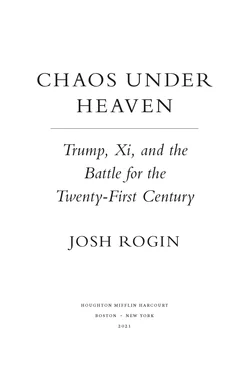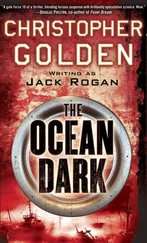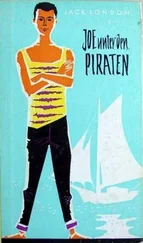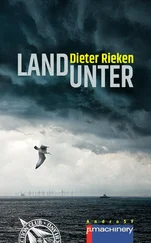Kushner was proving to be a good investment for Kissinger. Trump’s son-in-law had wasted no time showing that, despite his meager title, he held the power at the White House. Just two days after the election, on November 10, 2016, Trump had traveled down to Washington with Kushner and foreign policy adviser Michael Flynn. While Trump sat with Obama in the Oval Office, Kushner took a very public walk around the property with Obama’s chief of staff, Denis McDonough. “It was a really big deal because Jared was the one McDonough was dealing with, not Reince,” a White House official said, referring to Reince Priebus, the chairman of the Republican National Committee, who was soon to be named White House chief of staff. “It was the first big sign Jared was in charge and Priebus was a pissant.”
Kushner didn’t want a job in the spotlight. He didn’t want to be in the press. He just wanted to be in charge, playing a key role in almost every issue. For anyone who wanted to shape Trump’s China policy, Kushner clearly was the most important official to know—and, like Kissinger, the Chinese leadership smartly invested in him by working primarily through him and ignoring the hawkish advisers they hoped to marginalize.
Reinforcements
The day after the December 2 Taiwan call, the transition staff in New York knew they had a problem. The president needed to be briefed about the US-China relationship, and fast. But there were no actual China experts on staff.
So the transition team called in reinforcements. Trump transition official K. T. McFarland, who had early on in her career been Kissinger’s notetaker, called Michael Pillsbury, a historian and Mandarin speaker who had worked in policy and intelligence circles since the Nixon administration. We are forming a China team, she told him, and you’re on it. Show up at Trump Tower at eight o’clock on Monday morning.
Flynn, meanwhile, called in Matthew Pottinger, a former journalist who had spent seven years in China reporting for the Wall Street Journal before quitting journalism and joining the Marines in 2005 at age thirty-two. He had worked under Flynn in Afghanistan, where the general was then a top intelligence official, and had coauthored with Flynn a consequential document: a 2010 think tank report on how to fix the intelligence effort in Afghanistan, a paper that brought Flynn out of military obscurity and into the attention of the Obama administration. Now, Flynn was filling his staff with his intel buddies, so he tapped Pottinger back as his top Asia guy. The morning after receiving his old commander’s summons, Pottinger rode a Citi Bike uptown from his office at an investment consulting firm to Trump Tower to answer the call.
A semblance of a China team was taking shape. That was perhaps the only positive result of the Taiwan call. The negative was that Trump had started what was already poised to be a difficult relationship with China with a fight he didn’t intend. It also ended up poisoning Trump on the issue of Taiwan, backfiring on the hawks who thought the call was a good idea. Bannon, Navarro, and the other campaign folks thought they could control the policy by cutting out the bureaucracy, and they assumed that Trump was on board with their plan to come out guns blazing. But they soon discovered they had no choice but to engage the other people who had real influence with the president-elect—his New York billionaire buddies.
Over the course of the transition, Trump’s ragtag China team—Bannon, Navarro, Pillsbury, and Pottinger—set out to meet with the other stakeholders in Trump’s orbit. Each of these players would try to claim a piece of the China policy and steer it to their interests as time progressed. Factions formed and battle lines were set, but fhere weren’t just two teams, the China hawks and China doves. Opposing groups existed, to be sure—but even within them, there were disagreements all the time.
For example, during the transition, the team met with soon-to-be commerce secretary Wilbur Ross in his Fifty-Seventh Street apartment, which was packed with millions of dollars’ worth of Chinese art and artifacts. Ross had been to China over eighty times, he bragged to the China crew, and had substantial business interests there.
Ross and Navarro had worked together to write memos about China for the campaign; in those memos, Ross had taken a hawkish line on trade, which led Navarro to believe they were on the same page. But when they met after the election, Navarro and Ross got into a spat about whether the Trump administration should welcome foreign direct investment from China. Ross’s view was that Chinese investment was fine, so long as it did not affect US national security in any way. Navarro, on the other hand, believed—and had argued in several books—that essentially every dollar China sends to the United States should be rejected and every dollar that Americans invest in Chinese companies should be blocked. The hawks on Trump’s China team had only just banded together, and already fault lines were beginning to show.
Unlike Ross, Navarro was not a close friend of the new president. He had first encountered Trump when he had read that Trump was a fan of Navarro’s 2011 book Death by China. When it came time to make the movie, narrated by Martin Sheen, Trump provided a marketing blurb at Navarro’s request. Navarro, an economics professor at the University of California at Irvine, had run unsuccessfully for local political office five times. The fact that he had done so as a Democrat didn’t seem to bother Trump.
Class Warfare
In the few weeks between Trump’s election and his inauguration, it quickly became clear that consensus on China would be elusive within his administration. Even the hawks couldn’t agree with each other. But within Trump’s foreign policy team, class proved to be as big of a dividing line as ideology, if not bigger—a phenomenon that resulted in an alliance between the New York bankers and the Washington policy wonks, whose opposition to the hawks on the China team sometimes seemed more about personalities than policy.
The officials from the Wall Street Goldman Sachs clique (Kushner, Mnuchin, Cohn, and Cohn’s deputy, Dina Powell), upon arriving in Washington, naturally gravitated toward the DC Republicans one would find at fancy Georgetown spots like Café Milano (Priebus, Deputy Chief of Staff Rob Porter, Kellyanne Conway). “For Jared, Cohn and Mnuchin just made him more comfortable than a goofy California professor or a raspy voiced trade lawyer from Ashtabula, Ohio,” one White House official said, referring to Navarro and Robert Lighthizer, whom Trump would appoint US trade representative. “Rob Porter didn’t care about China. Reince Priebus didn’t care about China. But they wanted to hang out with the cool kids.”
Kushner was not a part of the “China team,” but only because he was part of his own faction, the Trump family. That faction was the best one to be in. The Trump Organization was a family business and Kushner had grown up in his own. It soon became clear to the hawks that Kushner’s instincts led him to agree more with the finance executives and billionaires he had known his whole life. Kushner was how these businesspeople, like the Chinese leaders, got to Trump outside any formal government process. The early China team saw Kushner as naïvely wading into geopolitics in ways that were sure to be unhelpful to their cause. Kushner saw his role as to help Trump get what he wanted—and if that was a deal with China, then so be it.
The official governmental China team also quickly realized it had to contend with another group of powerful figures who were determined to have their own influence over Trump’s China policy: the president-elect’s billionaire friends. Several of them had long-standing business interests in China and deep personal relationships with leading business and political figures in Beijing. The China team tried to co-opt these influencers as best they could; as they set about developing the beginnings of a real China strategy for Trump, the team sought out several of Trump’s billionaire buddies for counsel. They also wanted to know what Trump’s friends were likely to be saying in the late-night phone calls the staff knew were constantly occurring but couldn’t track.
Читать дальше











